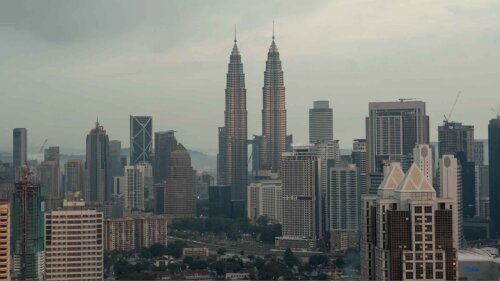Best Renewable & Alternative Energy Lawyers in Malaysia
Share your needs with us, get contacted by law firms.
Free. Takes 2 min.
Or refine your search by selecting a city:
List of the best lawyers in Malaysia
About Renewable & Alternative Energy Law in Malaysia
Malaysia is becoming increasingly committed to renewable and alternative energy as part of its strategy to address climate change, ensure energy security, and promote sustainable economic growth. The Malaysian government has introduced various initiatives to encourage the development and adoption of clean energy sources such as solar, biomass, biogas, hydro, and wind. The legal framework governing renewable energy is evolving to meet international standards and local needs, supporting both local and foreign investment in this sector. This area of law covers regulations for project development, licensing, grid access, incentives, and compliance requirements.
Why You May Need a Lawyer
Whether you are an entrepreneur, property owner, investor, developer, or business looking to enter the renewable and alternative energy sector in Malaysia, you may face complex legal and regulatory requirements. Legal assistance is often necessary in several scenarios, including:
- Reviewing and negotiating power purchase agreements and contracts
- Navigating the licensing and permit application process with government authorities
- Ensuring compliance with environmental and technical regulations
- Managing disputes with contractors, landowners, or regulatory bodies
- Structuring project financing and securing government incentives
- Handling land acquisition or lease agreements for renewable energy projects
- Protecting intellectual property and technology used in energy projects
- Managing import, export, and tax issues related to renewable energy equipment
A lawyer can provide guidance, prepare documentation, and represent your interests to prevent costly mistakes and resolve legal challenges efficiently.
Local Laws Overview
Malaysia has several key laws and policies that impact the renewable and alternative energy sector:
- The Renewable Energy Act 2011 - Establishes the feed-in tariff (FiT) mechanism and regulates the production, use, and sale of renewable energy.
- The Sustainable Energy Development Authority Act 2011 - Creates the Sustainable Energy Development Authority (SEDA) to oversee and promote renewable energy initiatives.
- The Electricity Supply Act 1990 - Regulates the generation, transmission, and consumption of electricity, including renewable energy integration into the national grid.
- The Environmental Quality Act 1974 - Sets requirements for environmental assessments and compliance for energy projects.
- National Renewable Energy Policy and Green Technology Policy - Guides government strategy and provides a legal backdrop for incentives, targets, and project approvals.
Other important regulations include net energy metering rules, large scale solar (LSS) program guidelines, and tax incentives for green technology. Keeping up to date with amendments and new developments is crucial for compliance and project success.
Frequently Asked Questions
What types of renewable energy projects are common in Malaysia?
Solar photovoltaic, biomass, biogas, small hydroelectric, and waste-to-energy projects are the most prevalent forms of renewable energy in Malaysia.
Who regulates renewable energy in Malaysia?
The Sustainable Energy Development Authority (SEDA) Malaysia is the main regulatory body overseeing renewable energy development, along with the Energy Commission (Suruhanjaya Tenaga) for technical standards and the Ministry of Natural Resources, Environment and Climate Change.
What is the feed-in tariff (FiT) mechanism?
The FiT system allows individuals or companies to sell electricity generated from renewable sources back to the grid at a fixed, government-guaranteed rate over a set period, encouraging investment in clean energy.
How do I apply for a renewable energy project license?
Applications can be made through SEDA or relevant authorities based on the type and size of the project. The process includes submission of technical, financial, and environmental documents, and may require an environmental impact assessment.
Are there incentives or grants for renewable energy in Malaysia?
Yes, Malaysia offers various incentives such as the Green Investment Tax Allowance (GITA), Green Income Tax Exemption (GITE), grants, and benefits under the feed-in tariff and net energy metering programs.
What legal issues can arise in developing renewable energy projects?
Common legal challenges include securing land rights, obtaining necessary permits, negotiating power purchase agreements, environmental compliance, and resolving disputes among stakeholders.
Can foreign companies invest in renewable energy in Malaysia?
Yes, Malaysia encourages both local and foreign investment in the renewable energy sector, subject to compliance with local laws and guidelines related to equity ownership, licensing, and environmental standards.
Do I need an environmental impact assessment (EIA) for my project?
Many renewable energy projects require an EIA, especially if they exceed certain capacity thresholds or are located in environmentally sensitive areas. The requirements are set by the Department of Environment under the Environmental Quality Act.
What happens if I violate renewable energy regulations?
Violations can result in fines, suspension or revocation of licenses, and other penalties. Non-compliance can also halt project development and cause financial or reputational losses.
How can a lawyer help with renewable energy projects?
A lawyer helps by guiding clients through regulatory processes, drafting and reviewing contracts, ensuring compliance with laws, advising on incentives, managing disputes, and providing strategic legal advice from project conception to operation.
Additional Resources
- Sustainable Energy Development Authority (SEDA) Malaysia
- Energy Commission (Suruhanjaya Tenaga)
- Ministry of Natural Resources, Environment and Climate Change
- Malaysia Green Technology and Climate Change Council (MGTC)
- Department of Environment (Jabatan Alam Sekitar)
- Malaysian Investment Development Authority (MIDA)
- Malaysia Photovoltaic Industry Association (MPIA)
These organizations provide guidelines, information, and support for legal and technical aspects of renewable energy projects in Malaysia.
Next Steps
If you are considering investing in, developing, or operating a renewable energy project in Malaysia, it is important to:
- Identify the specific type and scope of your project
- Consult government sources and regulatory guidelines relevant to your project
- Prepare necessary documents and conduct a legal review of contracts and agreements
- Engage a qualified lawyer with experience in renewable and alternative energy law in Malaysia
- Arrange consultations to discuss your objectives and potential challenges
- Stay informed about regulatory changes and new incentives
A legal specialist can help you make informed decisions, navigate the regulatory landscape, and reduce risks as you participate in Malaysia’s growing renewable energy sector.
Lawzana helps you find the best lawyers and law firms in Malaysia through a curated and pre-screened list of qualified legal professionals. Our platform offers rankings and detailed profiles of attorneys and law firms, allowing you to compare based on practice areas, including Renewable & Alternative Energy, experience, and client feedback.
Each profile includes a description of the firm's areas of practice, client reviews, team members and partners, year of establishment, spoken languages, office locations, contact information, social media presence, and any published articles or resources. Most firms on our platform speak English and are experienced in both local and international legal matters.
Get a quote from top-rated law firms in Malaysia — quickly, securely, and without unnecessary hassle.
Disclaimer:
The information provided on this page is for general informational purposes only and does not constitute legal advice. While we strive to ensure the accuracy and relevance of the content, legal information may change over time, and interpretations of the law can vary. You should always consult with a qualified legal professional for advice specific to your situation.
We disclaim all liability for actions taken or not taken based on the content of this page. If you believe any information is incorrect or outdated, please contact us, and we will review and update it where appropriate.
Browse renewable & alternative energy law firms by city in Malaysia
Refine your search by selecting a city.















